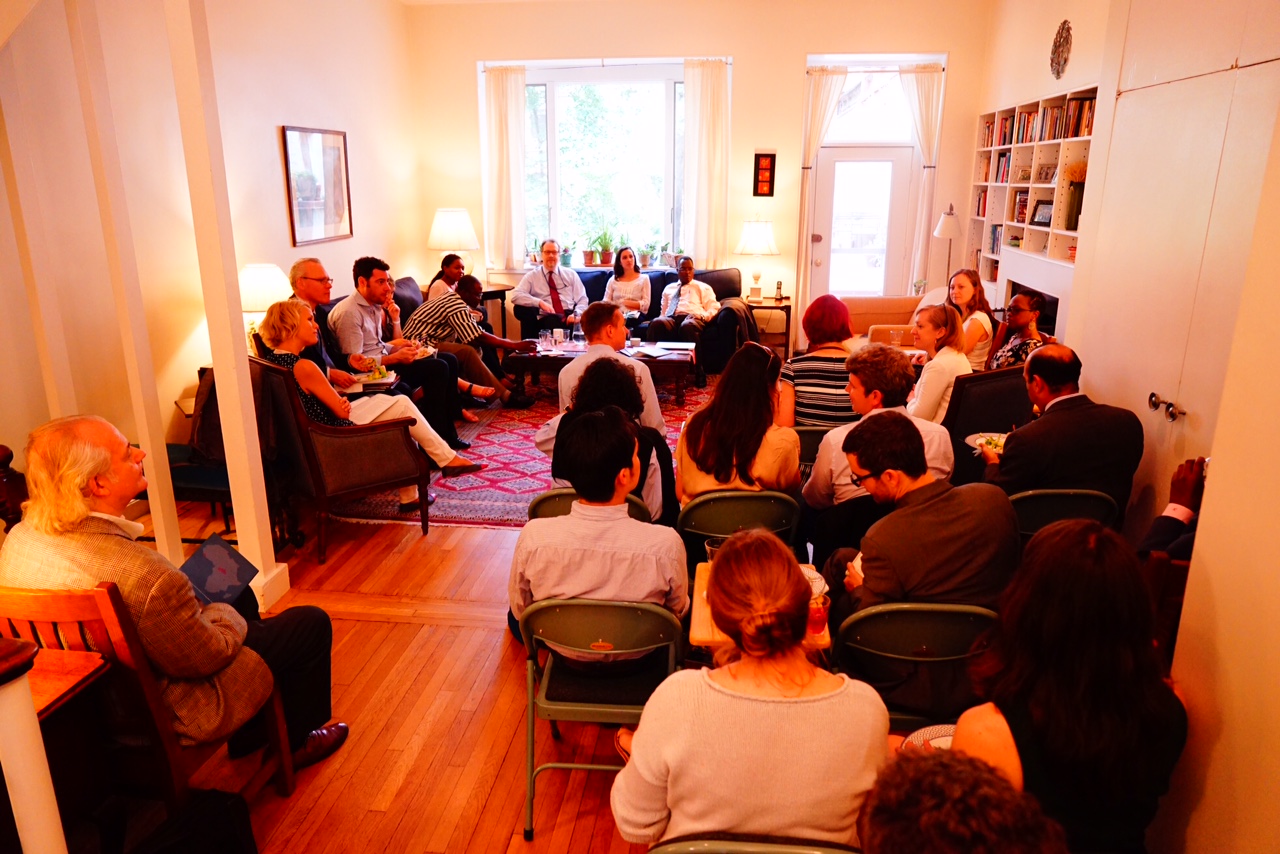QUNO hosted a series of discussions at Quaker House in New York to launch a new report by QUNO and the Global Partnership for the Prevention of Armed Conflict (GPPAC) entitled Filling the Gap: How civil society engagement can help the UN’s Peacebuilding Architecture meet its purpose. The report is a contribution to the 2015 review of the UN's Peacebuilding Architecture and includes concrete recommendations for how the UN can improve the way in which it collaborates with civil society on peacebuilding, both in New York and in country. In the launch events, the two co-authors from QUNO and GPPAC were joined by local researchers from Burundi, the Central African Republic, and Liberia, who shared their experiences with peacebuilding and conflict prevention in their own countries.

Humanitarian Challenges in Myanmar: Navigating Conflict and Crisis
On 9 July, the Quaker United Nations Office hosted a private briefing on Myanmar’s humanitarian crisis in the aftermath of the devastating 7.7 magnitude earthquake that struck on 28 March 2025. At Quaker House, Gum San Nsang, Secretary of the Kachin Political Interim Coordination Team, briefed UN diplomats. With the monsoon season threatening to worsen the humanitarian crisis, he emphasized the need for the international community to address aid distribution issues, reminding them that “each day later is a day worse than before.” In his remarks, Gum San noted that the distribution of humanitarian assistance has been exacerbated by the dwindling control of the military junta that seized control during a coup in 2021. He explained that the military has prevented aid from reaching parts of the country not under its control, while diverting aid to its own stockpiles. Beyond the focus on humanitarian issues, Gum San also addressed the ongoing conflict situation between the military and armed resistance groups. He highlighted that the struggle to control the mining of rare earth minerals represents a major driver of conflict, especially in northern Myanmar. Currently, the UN’s Office of Coordination of Humanitarian Affairs (OCHA) estimates that 20 million people, over one […]






